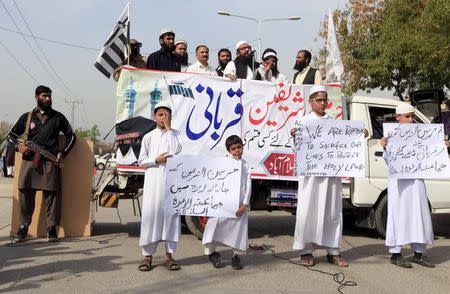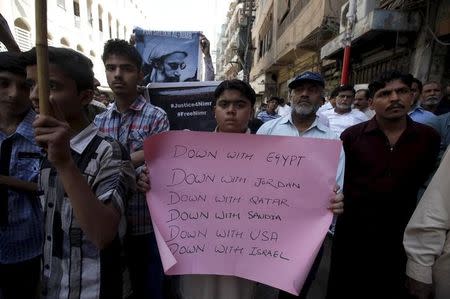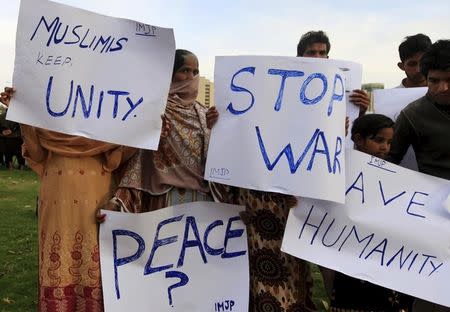Pakistan to join Saudi coalition against Yemen rebels - senior official
By Mehreen Zahra-Malik ISLAMABAD (Reuters) - Pakistan will send troops to Saudi Arabia to give military support to a coalition of mainly Gulf states fighting Yemeni Houthi rebels, a senior government official said on Monday. Largely Sunni Muslim Pakistan - a regional ally of Saudi Arabia, the Gulf's main Sunni Muslim power - would join a Saudi-led military coalition conducting air strikes against Shi'ite Houthi forces, the official said. The air strikes are targeting the rebels' southward advance on the port city of Aden, the last bastion of Saudi-backed president, Abd-Rabbu Mansour Hadi. Pakistan's Defence Minister Khawaj Asif denied that the country had made a decision to send troops to Saudi Arabia, saying a delegation led by him and foreign policy chief Sartaj Aziz, would go to Saudi Arabia on Tuesday and then decide. Saudi Arabia has not decided yet whether to send ground troops into Yemen but is keeping its options open, its ambassador to the United States said on Sunday, but was committed to completing its air campaign. Nuclear-armed Pakistan shares a long border with Iran, considered to be the centre of Shi'ite power, and has a warm relationship with Saudi Arabia, Iran's main regional rival. An estimated 20 percent of Pakistanis are Shi'ite. "We have already pledged full support to Saudi Arabia in its operation against rebels and will join the coalition," the Pakistani official said. The Pakistani delegation, led by Asif and Aziz, had been due to arrive in Saudi Arabia on Monday but delayed the trip at the request of the Saudis, the official told Reuters. On Monday night, Aziz and Asif met Pakistan's military chiefs and Prime Minister Nawaz Sharif. "Pakistan remains firmly committed to supporting the sovereignty and territorial integrity of Saudi Arabia in accordance with the aspirations of the people of Pakistan," a statement from Sharif's media office said. "Pakistan stands committed to playing a meaningful role in arresting the deteriorating situation in the Middle East." There are already about 750-800 Pakistani servicemen in Saudi Arabia but none are combat troops. On Monday, a Pakistani military spokesman said 292 Pakistani soldiers were meeting Saudi troops for annual, pre-scheduled military exercises. Saudi and United Arab Emirates planes are leading the air attacks and alliance spokesmen have not confirmed whether any other Gulf Arab states are taking part in the strikes, although Qatar, Kuwait and Bahrain are members of the alliance. Residents said ships believed to be Egyptian shelled a column of Houthi fighters trying to advance on Aden. The United States is providing intelligence support, and a Gulf diplomatic official said France was giving similar help. Pakistan has already had small demonstrations both for and against military intervention. Right-wing religious groups demonstrated last week vowing to defend Saudi Arabia. But some civil society groups and opposition politicians spoke against intervention, in the view that it could further inflame sectarian tensions at home. Sharif has long enjoyed close relations with the Saudi royal family. After his second term as prime minister was ended by a military coup in 1999, he was sent into exile in Saudi Arabia. Saudi Arabia lent $1.5 billion to Pakistan last year to help Islamabad shore up foreign exchange reserves. Pakistani officials initially refused to divulge the source of the loan. (Additional reporting by Katharine Houreld; Editing by Louise Ireland)

 Yahoo News
Yahoo News 


